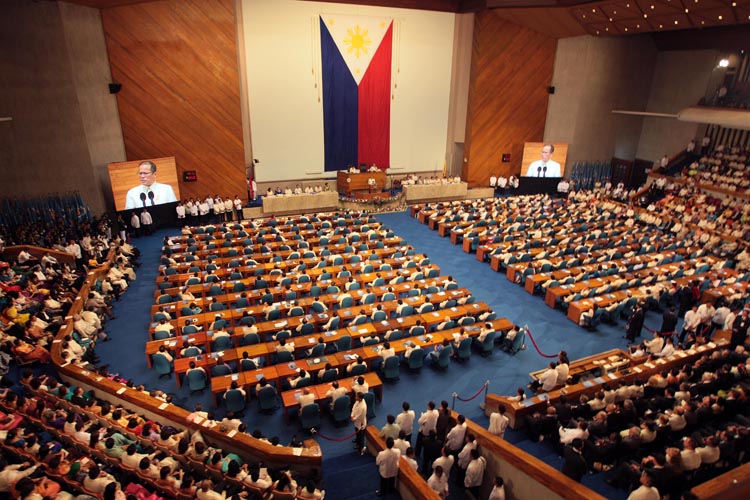
(Photo: Robert Viñas/Malacañang Photo Bureau)
MANILA – Members of the House Committee on Public Order and Safety have decided to drop the use of the phrase “extrajudicial killings” in all its future hearings, investigations and reports, and will instead use the term “death under investigation” of the Philippine National Police (PNP).
The committee chaired by Rep. Romeo Acop (2nd District, Antipolo City) approved the motion raised by Deputy Speaker Gwendolyn Garcia who questioned the use of the term “extrajudicial killing” in the absence of capital punishment or death penalty in the country.
“I am really curious what the definition of extrajudicial killing is because extrajudicial would mean outside of the parameters of a judicial killing. But do we have such a thing as judicial killing in the Philippines? As far as I know, the last law that was passed that imposed the death penalty by lethal injection was Republic Act No. 8177. But this was repealed by R.A. 9346. And therefore right now, we don’t have the death penalty in the Philippines. How could we have such a thing as a judicial killing? And yet it is now so commonly used, that even in the Senate, there was an investigation conducted by the Committee on Justice as regards extrajudicial killing,” said Garcia.
Garcia said her father, former Cebu Rep. Pablo Garcia, had in fact authored the bill that became R.A. 8177, which was later repealed by R.A. 9346.
Based on the definition of Wikipedia, Garcia said “extrajudicial killing” is “the killing, mainly politically motivated, of a person by governmental authorities or dominant political groups without the sanction of any judicial proceeding or legal process.”
“So there is the condition of the possibility of a judicial proceeding or legal process. This definition may apply to the 10 top countries that still have capital punishment. So such a judicial proceeding or process is possible, the condition is possible. But here in the Philippines, there is no such possibility because we do not have the death penalty,” Garcia explained.
Garcia then moved that as far as all other investigations or reports that may be taken up by the committee, the panel shall not recognize the term “extrajudicial killings,” but will rather use “death under investigation.”
“May I move that as far as this committee is concerned, let it be known that at least in the House of Representatives, in the Committee on Public Order and Safety, we have found it imperative to put things in proper perspective and correctly define the issue by adopting the definition of the PNP which is death under investigation?” said Garcia.
Acop said it has been moved and duly seconded that the committee will no longer use the phrase “extrajudicial killing.”
The issue on “extrajudicial killing” was first raised during the hearing by Rep. Winston Castelo (2nd District, Quezon City) who said the highlight of the PNP crime index now is on the campaign against drugs.
“The most controversial feature of that campaign is the so-called extrajudicial killings or summary execution. May we ask what is the stand of the PNP on this? Does it condone extrajudicial killings?” asked Castelo.
Police Director Lazarus Vargas, PNP Director for Plans, said the PNP never used the word or term “extrajudicial killing.”
“We use the term death under investigation because as you’ve earlier said there is no such thing as extrajudicial killing. We did not define it. It is used by organizations outside the PNP. It did not come from us,” said Vargas.
Vargas stressed the so-called “extrajudicial killing” is not part of the campaign against illegal drugs.
Police Chief Supt. Camilo Pancratius Cascolan, Acting Director of the Directorate for Operations, said there are 1,571 deaths under investigation. He said these are not all drug-related cases. “There are still cases that we are still identifying,” he said.
Cascolan further said one of the things the PNP does is to investigate immediately all kinds of killings. “We do not tolerate any kind of illegal police operations,” Cascolan said.